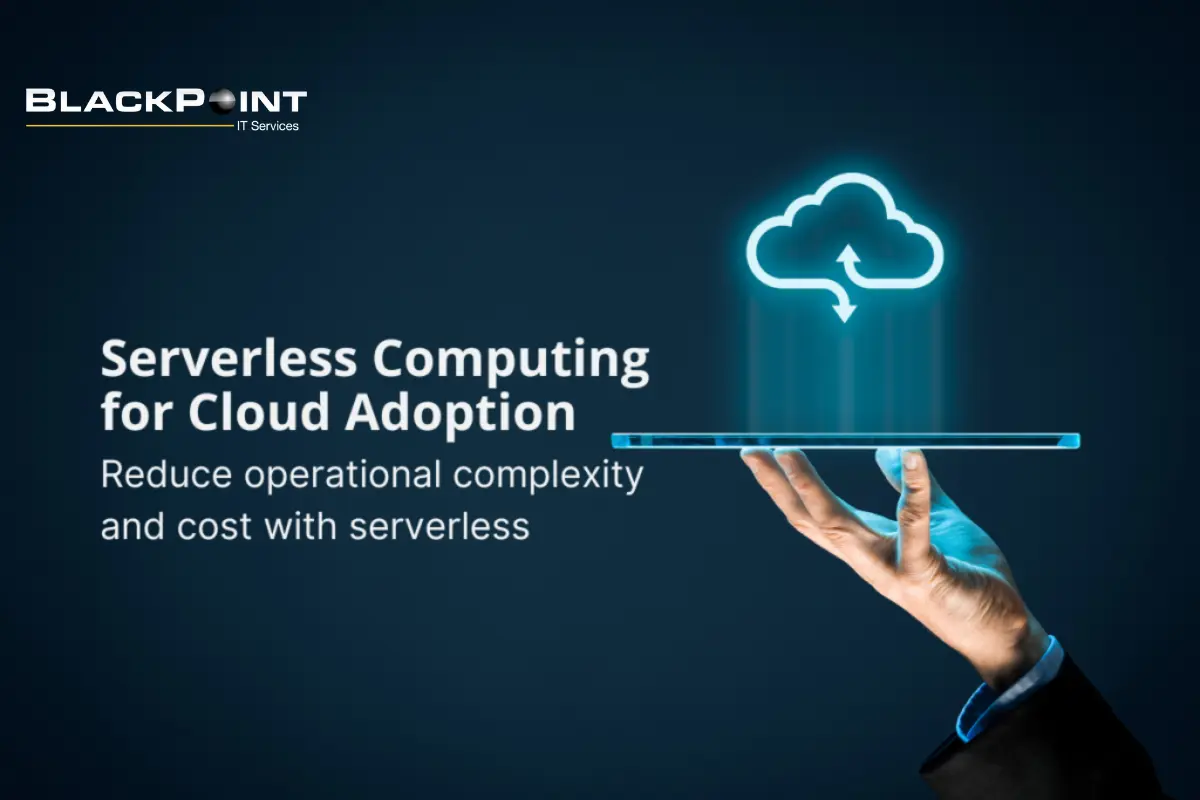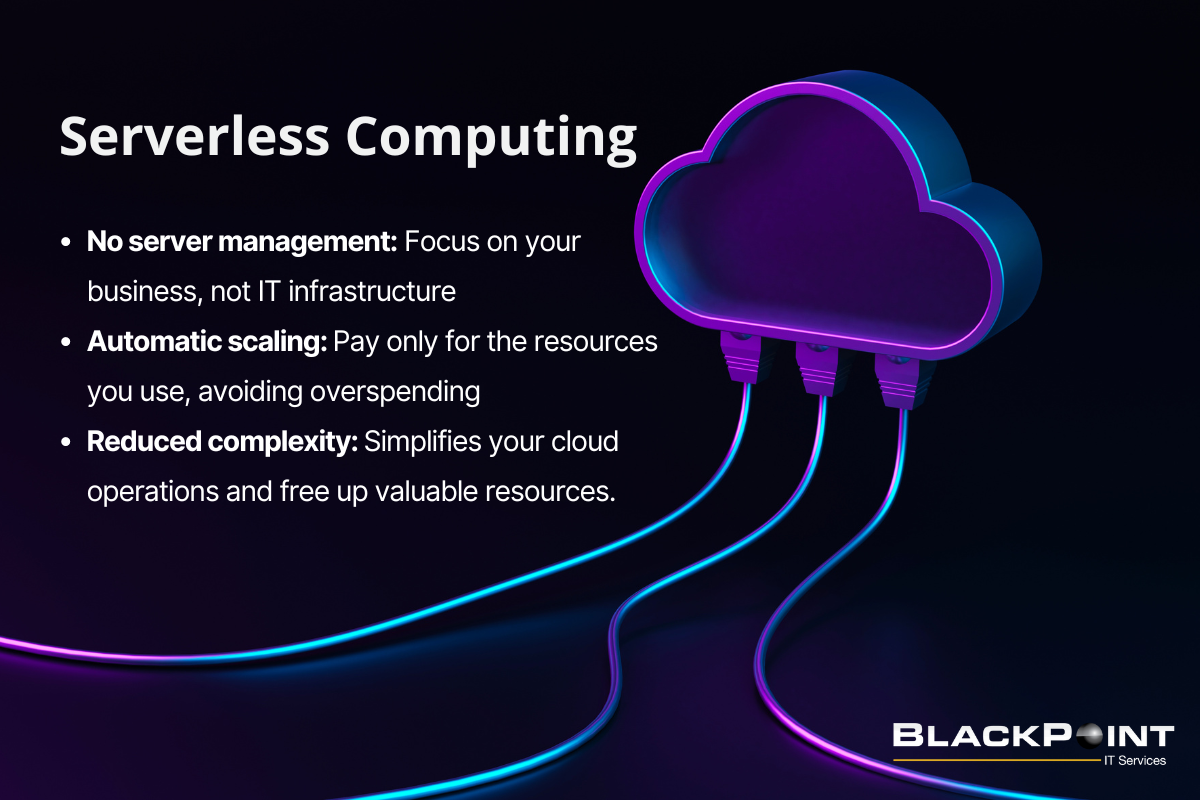
Serverless computing, despite its name, doesn’t imply the absence of servers. It’s actually a modern twist on cloud computing that’s tailor-made to ease the load of server management for small to medium-sized businesses (SMBs). Just like other cloud services, serverless computing offers on-demand access to essential resources such as computing power, storage, and networking, with all the heavy lifting handled by a cloud provider.
For SMBs, this means a significant reduction in IT complexity, as they no longer have to deal with the headaches of hardware provisioning, server maintenance, and updates.
Let’s discuss how serverless computing can be an attractive option for SMBs looking to optimize their IT budgets and maximize their return on investment.
SMBs often face resource constraints and require cost-efficient solutions to manage their IT resources. Serverless computing provides a compelling solution by offering these cost-saving advantages.

Compared to traditional IT infrastructures, where you have to manually manage and provision servers to cater to changes in demand, serverless architectures offer a more seamless way to handle scalability.
In a serverless framework, functions respond to specific events or requests, such as HTTP requests or database changes. As the demand rises, the infrastructure automatically expands to allocate additional resources, enabling you to manage spikes in traffic or demand effortlessly without any intervention and ensuring that your applications remain accessible to users.
This streamlined approach eliminates the need for anticipating and provisioning resources in advance, saving you time and effort. Instead of worrying about provisioning servers for peak loads, you can rely on the serverless platform to scale up and down automatically as needed. This means you can scale your IT infrastructure dynamically in response to demand, ensuring you can always meet customer needs without overspending on unnecessary resources.
You can optimize costs and resources by utilizing serverless computing’s automatic scalability while delivering a seamless customer experience. You can ensure your applications remain responsive and available, regardless of workload fluctuations.
Serverless computing is a cloud technology that simplifies the management process for you by eliminating the need for in-house server management. This means you no longer have to worry about provisioning, maintaining, and scaling servers, reducing complexity and costs.
In traditional cloud deployments, you may face complexities such as load balancing, auto-scaling, and server maintenance. However, with serverless computing, these complexities are abstracted away, making it easier and more accessible for you with limited resources to take advantage of cloud computing benefits.
Overall, serverless computing enables you to leverage advanced cloud technologies without needing extensive IT infrastructure and expertise.
When selecting a cloud provider, here are the five essential things you need to consider when making this important business decision.
You should evaluate the performance metrics provided by different cloud providers to ensure that they meet your specific business requirements. To accomplish this, you should carefully assess various factors that affect the performance of your applications and workloads on the cloud infrastructure. These factors may include processing speed, data transfer rates, and overall system responsiveness.
For optimal performance and minimal downtime, prioritize a cloud provider with a proven track record of reliability, robust infrastructure, and disaster recovery plans. Opt for providers known for delivering high-quality service and support, ensuring your business is in capable hands.
You need solutions that offer the best value for your budget while meeting your specific performance and reliability requirements. It is important to note that the pricing structures of different cloud providers can vary as providers may charge based on storage, data transfer, or usage.
When evaluating cloud providers, focus on their ecosystem support. This includes third-party integrations, developer tools, and a supportive community. Prioritize seamless integration with your existing workflows and access to resources like forums and knowledge bases for optimal troubleshooting and maximizing investment.
It is essential to check if your cloud provider has robust security protocols that assure your data’s confidentiality, integrity, and availability. You should also ensure your chosen cloud provider adheres to stringent security standards and compliance regulations.
Feeling overwhelmed by server management? As a trusted cloud solutions provider, BlackPoint IT can help you unlock the power of serverless computing. We’ll guide you through the migration process, seamlessly transferring your applications to a serverless environment, freeing you from infrastructure headaches.
Our ongoing managed cloud services ensure your serverless applications run smoothly and efficiently. We proactively monitor performance, optimize costs, and provide robust security – all while ensuring compliance with industry regulations.
Ready to ditch server management and focus on what matters most? Contact us today for a free consultation and discover how serverless computing can take your business to the next level!